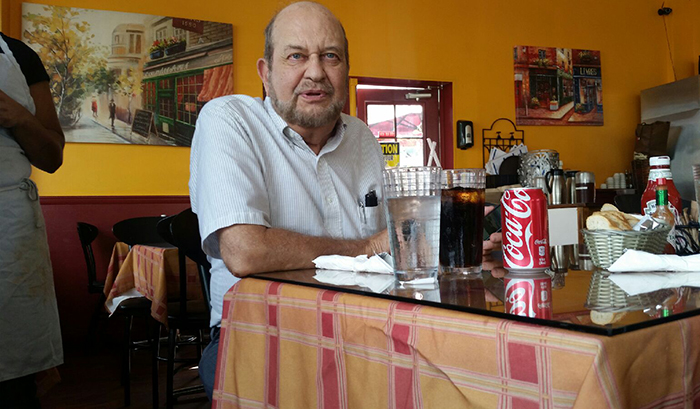California’s government soon will begin to learn what it means to deal with a president who very frequently is less than truthful.
The reality of Donald John Trump’s relationship with facts and truth apparently didn’t matter much to voters in the many small-population states which together provided the Electoral College majority that’s about to put him into the White House – if he chooses to headquarter outside his eponymous gilded tower.
The phenomenon became obvious early in last year’s presidential campaign, beginning with a whopper told during an early Republican primary debate.
Mr. Trump bragged about being great friends with Russian President Vladimir Putin, saying they met in the “green room” (essentially a waiting room) of a CBS News 60 Minutes broadcast a year earlier. Trouble was, Mr. Putin was interviewed for that show in his Kremlin office not far from Red Square, while Mr. Trump appeared from an office in his eponymous tower in New York. The pair may have met elsewhere earlier, but unless the green room was somewhere in the North Atlantic Ocean, Mr. Trump’s story was simply impossible.
Mr. Trump told so many whoppers during the campaign that the PolitiFact website rated him as less than 25 percent truthful just before Election Day. The site reported 76 percent of Trump statements of “fact” were more than half false. (Democratic opponent Hillary Clinton got a 26 percent falsehood rating.)
The pace of Trump falsehoods slowed after the election, perhaps because he’s had fewer public appearances. But the president-elect is no more shy about turning to Twitter than he was during the campaign.
Like most of his not-quite-so statements, his most egregious post-election one was completely self-serving. Smarting because he lost the popular vote by almost 3 million, giving him less of a mandate for policy or anything else than any previous president, Mr. Trump tweeted “Serious voter fraud in Virginia, New Hampshire and California – so why isn’t the media reporting on this?”
Media Talks Back
Of course, major media immediately seized on that tweet, noting accurately that Mr. Trump offered no evidence of fraud. Television interviewers gave Trump aides several opportunities to back up his charges, but they could cite only two claims of voter fraud from 2013 and 2014, both long ago proven bogus.
Mr. Trump still persists in his claim, perhaps unwilling to accept the fact he didn’t come close to winning the contest for votes of American citizens.
That’s where California comes in. Officials here, starting with Secretary of State Alex Padilla, an MIT engineering graduate, called the Trump charge of massive vote fraud by illegal immigrants “absurd.”
The claim was reminiscent of what followed when Democrat Loretta Sanchez (defeated last fall in a bid for the U.S. Senate) unseated longtime conservative Republican Rep. Robert Dornan in 1996 in his Orange County district. The GOP-led Congress ordered a full investigation of possible illegal immigrant votes for Ms. Sanchez. When that GOP-led effort concluded 14 months later, it had found only a few hundred possibly flawed ballots, but could not tell for whom they were cast. The total of all such ballots was well below Ms. Sanchez’s winning margin.
There is no reason to believe a fraud investigation today would be different.
Mr. Trump’s self-serving statement, like his claim of being a Putin green-room buddy, nevertheless was widely disseminated on social media like Facebook – home to many fake news stories – and is widely believed in many parts of America today, just as most Trump voters think he won the popular vote. Because his slander against election integrity in California harmed no individual, he won’t be sued for it.
The question now is whether and when Mr. Trump will part from the facts again in ways that denigrate or harm California. If he or his administration denies federal grants to this state – which pays more than any other into the federal treasury – on false grounds, will there be legal action to rectify matters?
What happens if Mr. Trump agrees to “deals” with California officials, then denies making them? So far, he never has so much as apologized when his remarks were exposed and proven untrue.
This is completely new territory for America and for California, neither of which has ever had to deal with such an unaccountable chief executive.
Mr. Elias may be contacted at tdelias@aol.com. His book, “The Burzynski Breakthrough, The Most Promising Cancer Treatment and the Government’s Campaign to Squelch It,” is now available in a soft cover fourth edition. For more Elias columns, visit www.californiafocus.net








